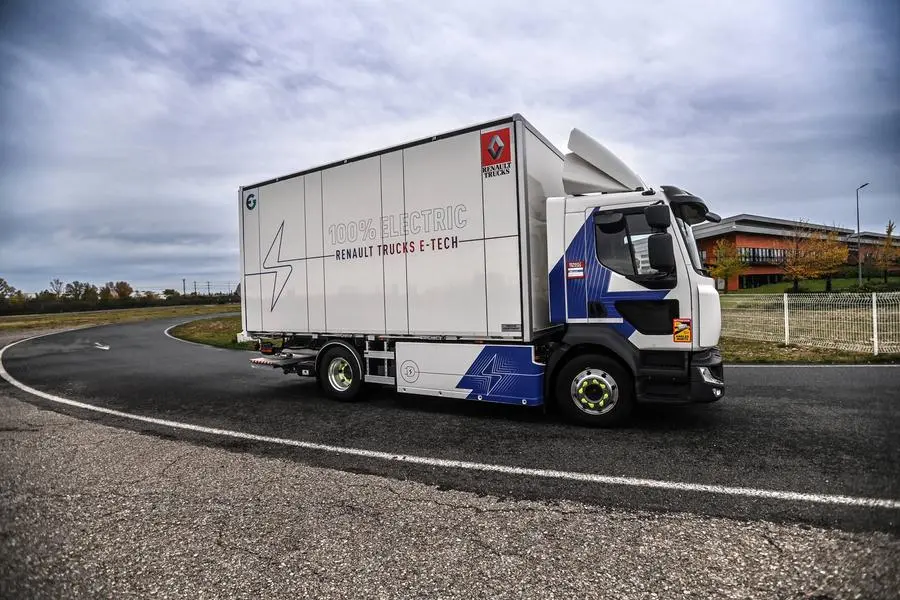PHOTO
Electric trucks produce far fewer planet-warming emissions than their diesel counterparts over a lifetime, a report in Europe showed Tuesday, emphasizing that the biggest climate impact comes from driving vehicles and not manufacturing them.
The transport sector accounts for about 30 percent of greenhouse gas emissions in the European Union, the biggest contributor in the bloc. Heavy vehicles like trucks and buses account for about a quarter of those transport emissions.
A fully electric 40-tonne tractor-trailer emits 63 percent lower emissions compared to diesel trucks over 1.3 million kilometres (808,000 miles) travelled, according to new research Tuesday from the International Council on Clean Transportation (ICCT) think tank.
This calculation accounts for the emissions associated with the extraction of raw materials, construction and maintenance of the vehicle using the EU's average electricity grid mix.
"The problem is not the factory but the road," said Nikita Pavlenko, ICCT's fuels team lead.
"The high greenhouse gas intensity of driving a truck during its whole life offsets the (greenhouse gas) emissions generated during manufacturing or the production of the fuel, or the energy it consumes."
The research found that emissions will fall even more as the EU's electricity grid further decarbonises, enabling an 84-percent reduction of emissions when using only renewable sources of power.
It also found that trucks and buses using natural gas provide marginal emissions reductions, just four to 18 percent lower than their diesel counterparts.
Methane, which leaks from vehicles using natural gas and throughout the production and supply of the gas, is a significant driver of those emissions.
While more electric buses and light vehicles are on the road throughout the EU, diesel still powered 99 percent of trucks sold in Europe in 2021.





















